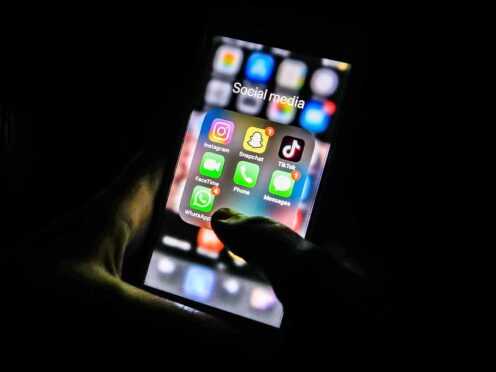The biggest tech and social media companies are falling short on protecting users from content designed to disrupt democracy by not working together on the issue, a joint committee of Parliament has warned.
The Joint Committee on the National Security Strategy (JCNSS) said it was concerned by the differing approaches across different tech firms around monitoring and regulating potentially harmful content.
The committee said the evidence it had received from the biggest platforms, as part of its defending democracy inquiry, showed companies were developing individual policies based on their own sets of principles, rather than co-ordinating standards and best practice.
Dame Margaret Beckett, chairwoman of the JCNSS, said evidence from firms including X (formerly Twitter), TikTok, Snap, Meta, Microsoft and Google showed an “uncoordinated, siloed approach to the many potential threats and harms facing UK and global democracy”.
Social media and wider tech platforms have found themselves under additional scrutiny this year because of record numbers of people expected to take part in elections.
Polls are due in more than 70 countries including the UK, US and India. That combines with the rapid evolution of artificial intelligence fuelling a rise in AI-generated content, including misleading material, better known as deepfakes.
Dame Margaret said the committee was also concerned by the firms’ use of free speech as a defence for allowing certain types of content to stay online.
“The committee understands perfectly well that many social media platforms were at least nominally born as platforms to democratise communications: to allow and support free speech and to circumvent censorship,” Dame Margaret said.
“These are laudable goals but they never gave these companies or any individual running and profiting from them the right or authority to arbitrate on what legitimate free speech is; that is the job of democratically accountable authorities.
“That only holds truer for the form that many of these publishing platforms have in fact taken – one of monetising information spread through addictive technologies.”
She added that members of the committee also had concerns over the approach of some of the biggest tech firms to combating the rising problem of AI-powered misinformation, and also criticised their approach to giving evidence to the inquiry.

“This year we have seen groups developing technology to help people decipher the veracity of the dizzying variety of information on offer at every moment online.
“We would have expected that kind of front foot and responsibility from the companies profiting from spreading the information,” she said.
“For a start, we expected social media and tech companies to proactively engage with our parliamentary inquiry, especially one so directly related to their work at such a critical moment in our global history.
“And if we must pursue a company operating and profiting in the UK to engage with a parliamentary inquiry, we expect much more than a regurgitation of some of its publicly available content which does not specifically address our inquiry.
“Much of the written evidence that was submitted shows – with few and notable exceptions – an uncoordinated, siloed approach to the many potential threats and harms facing UK and global democracy.
“The cover of free speech does not cover untruthful or harmful speech, and it does not give tech media companies a get-out-free card for accountability for information propagated on their platforms.”
Although some platforms have announced some tools to better monitor and flag AI-generated content on their sites, industry-wide standards on the issue are still not in place.
Earlier this year, fact-checking charity Full Fact warned that the UK was “vulnerable” to misinformation, in part because of gaps in existing legislation and the rise of technology such as generative AI.
But Dame Margaret warned that there was also “too little evidence” that tech firms were doing enough to manage the threats as well, and called for more Government intervention.
“Though we have not concluded our inquiry or come to our recommendations, there is far too little evidence from global commercial operations of the foresight we expected: proactively anticipating and developing transparent, independently verifiable and accountable policies to manage the unique threats in a year such as this,” she said.
“There is far too little evidence of the learning and co-operation necessary for an effective response to a sophisticated and evolving threat, of the kind the Committee described in our report on ransomware earlier this year.
“The Government’s Taskforce on Defending Democracy might be a useful co-ordinating body for social media companies to proactively submit and share their learning on foreign interference techniques.”
A Government spokesperson said: “Defending our democratic processes is an absolute priority and we will continue calling out malicious activity that poses a threat to our institutions and values, including through our Defending Democracy Taskforce.
“Once implemented, the Online Safety Act will also require social media platforms to swiftly remove illegal misinformation and disinformation – including where it is AI-generated – as soon as they become aware of it.”
